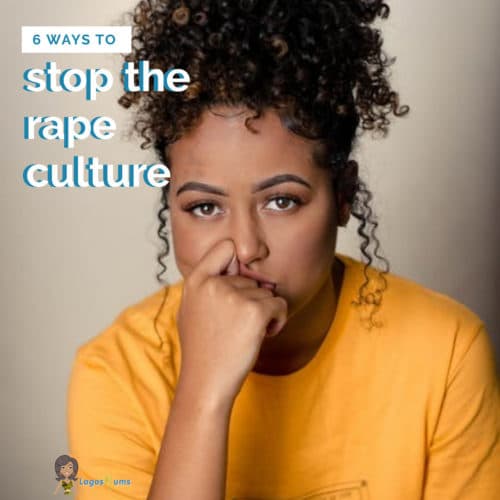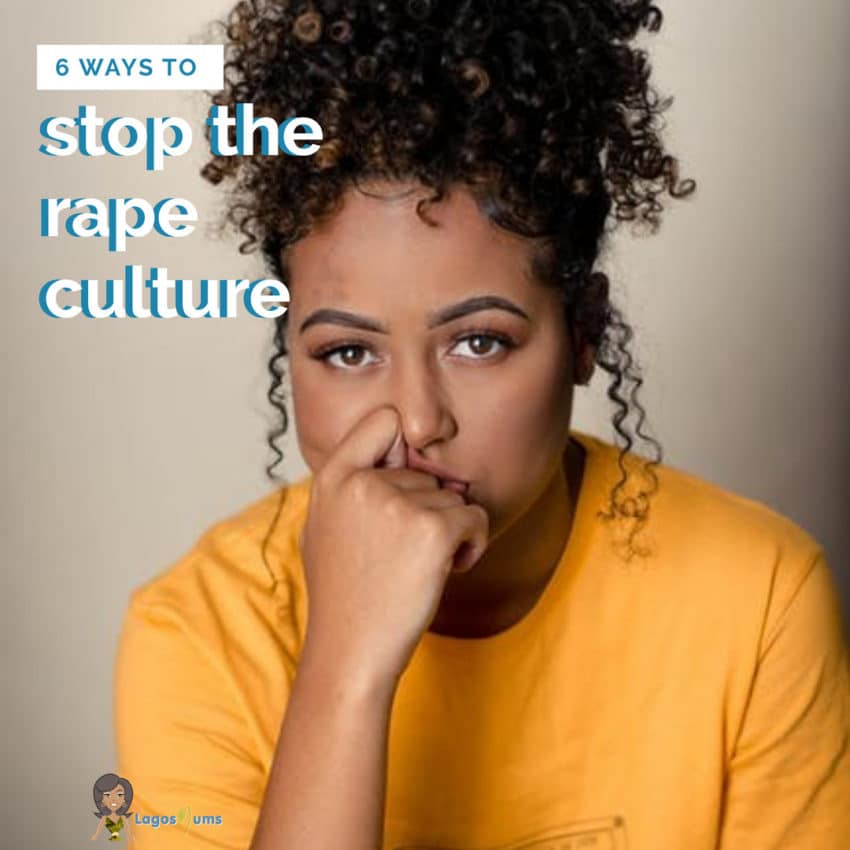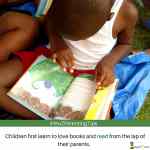On my weekly radio show today on Parenting Today, the conversation was around stopping the rape culture and discussing what we need to do now.
First of all, the question is can we put an end to the rape culture? You know, I think this takes a different spin; because a lot of the conversations I’ve heard it is about teaching the girl how to avoid becoming a victim of sexual crime.
When it comes to talking about the rape culture, we have to start by asking ourselves, do why do we have such a culture? What does it mean? I like to look at things from a perspective of what can we do to change the narrative. Especially if the narrative is not working and hurting people. I feel that to start to make changes we need to understand, why and how prevalent it is first. Then we want to see if it possible to even raise a new generation where this is something that will not happen at all?

Why this topic now
You know the most recent rape cases that have come to light have been trending. But that’s the thing; a lot of things become hashtags, but I think we must remember the lives behind them and what is going on behind them.
So, you know, we have the most recent ones who are Tina, but there are countless others happening consistently and regularly. And it’s not just the abusive nature of you know, sexual assault and what rape is, but the fact that there is an underlying culture behind it, and I think that’s what I want us to start to unpack.
While we cannot solve such a systemic issue in a hurry, we can start by having these conversations in our homes so that we can start to highlight and educate on what leads up to rape in the first place.
What is rape culture?
Rape culture is an environment in which rape is prevalent, and in which sexual violence against women is normalized, excused, and trivialized. And media and popular culture have a place to play here. This is what constitutes rape culture, the idea that sexual violence objectifying women’s body and all those things are just part of life? and okay. While boys and men can also be victims, the majority of victims are women.
Comments such as boys will be boys, excusing bad behaviour or aggressiveness are part of the things that go into toxic masculinity.
When that uncle comes to your house and says “my small wife” referring to your budding teenager.; as a parent don’t laugh. It is not funny. She is not someone’s small wife. The minute you start to allow those types of sentiments, you just don’t know where it’s going to lead. It is not about being a paranoid parent or person, but we have to realize that majority of rape cases or sexual assault are committed by people the victims know.
Sexual Assualt can happen right from home
So when we keep that in mind, I think the conversation too should not only be that rape happens when you wear a short skirt, or you’re walking down the road by yourself at night. You know that is not the only thing that that that encourages rape. Majority of the cases happen right at home or right in an environment where the person thought they were safe. And it was somebody that they thought should not or could not do this to them. And they do it.
[Tweet “It is equally important for us to understand what the grooming process looks like.”] From research and talking to experts, in many cases, rape is hardly ever just sprung on somebody. Usually, there’s a grooming process. So if our children are also not empowered to identify what a grooming process looks like, they will not even know when they are being positioned to be a potential victim.
How do we empower our girls and our boys so they are not victims and not to take part in the rape culture in the first place? You know, it all starts from having those hard conversations at home from day one.
What Role do Parents Play
Unfortunately, we have all heard of when a child who was was a victim of sexual assault or rape is blamed them for being in the wrong place at the wrong time. Sometimes the parents themselves are part of the rape culture by shaming their child or not believing their claims. Parents need to understand what the steps are to start the healing process for their daughter (or son) who has been sexually assaulted?
As a coach, it is part of my training to try to have empathy and to try and understand people. You have to wonder what that Mother who blames her young child for getting raped is thinking. Afterall you expect a mother to love her child more than anything else.
[Tweet “What has that mother herself gone through in her life? She is also a victim of the rape culture. This is why she would ever blame a child.”] She has been raised or conditioned to think that rape is the victims fault.
What a parent needs to do is to respond first by believing the child and then taking the right steps to get the child help, counselling, justice and healing. Unfortunately, I have heard too many cases of victims of sexual assault who couldn’t tell their mother. It’s bad enough that they were victims of sexual assault, but it’s even more painful when they have to keep it to themselves. This is usually because they cannot tell their parents, they do not believe they will protect them or to come to their aid.
So they carry the damage around with them for a long time, you can imagine what that does relationship between a child and her parents.
Have conversations
So you need to ask yourself, number one, how do you see sex, sexual intimacy, and all of that? What is your view on it? You need to start asking yourself those questions before you can teach the next generation anything.
Because if you don’t even know what you think about it, what are you passing on?
Educating people is very important. However, it is one thing to know what you know, or what you need to know, the next step is to understand it. And then the third step really is the wisdom to apply it. The knowledge needs to be widely disseminated to adults, children, everybody involved needs to understand that this happens.
It is prevalent
One in three women has been abused in some shape or form. Right? So it is very incident. It’s high. It’s happening a lot around us. So that’s number one is just knowing that this is a fact and it happens. What does this mean? It means that the rape culture is so real that it is likely that your sister, your neighbour, your friend, your cousin, your daughter, might be a victim. We all need to do something.
The conversation should not be along just gender lines anymore, because I found that a lot of young boys were abused as children by older women. Sometimes a man who is overly promiscuous or likes older women was assaulted as a child.
I know some families where the husband is dead set against them having a nanny. And when you ask it is because he was abused by domestic staff, right under his parent’s nose. They were told to be a man and not report! This is all part of the rape culture. All these have a long-lasting impact on everybody.
Gone as the days when somebody tells you, if you look at the boy, you will get pregnant. We need to stop those kinds of comments. Or we do sex education in school in a very clinical way. Rather we need to have real conversations. [Tweet “A boy needs to know not to look at a girl and make her feel uncomfortable.”] Nor pass comments about her body and shouldn’t say you are flat-chested. Children need to know from a young age that these things are wrong.
Changes
In the case of George Floyd, he is not the first black person that was killed by police. However, somehow this particular one is sparking so much outrage. I have a feeling that a lot of things are going to change permanently.
I believe that’s also what will happen when it comes to rape culture as well. That is not okay. You know, even some of the videos you watch are like soft porn. I think if this is what our young children are feeding on every day; eventually, they’re going to think their classmates or their friends should be able to satisfy them because of what they have seen on TV all the time. All these things play a part in our psyche.
The role justice plays
If people are not paying the price and not feeling the consequences for their actions; they are going to continue to do more of what they shouldn’t because they feel they can get away with it. The justice system needs o work.
In reality, everybody needs to realize that they have a part to play. And I think if we want to see any change, we need to start from understanding this. It could be your neighbour or your colleague if people make comments that make light of sexual crimes, speak out.
We all need to be part of the conversation. Everyone needs to be speaking out more when something is not ideal. Let’s be bold enough to say something about it. And the last thing I want to say is that if somebody is a victim, please do not shame them, do not blame them, do not shut them up. Be supportive and send them to people who are equipped to take care of victims.
If you or anyone you know is a victim call Warif on 0802-210-0009. This number is manned 24 hours, somebody is always available.
UN shares some tips here



